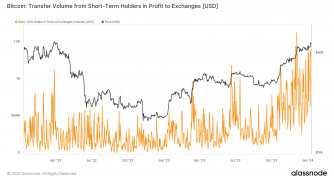The cost of living crisis is being made worse for poorer households by waning competition in British markets.
That’s the conclusion in a report by Britain’s competition regulator, the Competition and Markets Authority.
It said that this lack of competition has allowed the biggest companies to consolidate their positions and raise prices at a time when millions of people in the UK are struggling with rises in energy bills, council tax, national insurance, fuel, and inflation.
The CMA’s chief economic adviser Mike Walker said: “We are seeing markets getting more concentrated, companies enjoying higher mark-ups and the biggest firms maintaining their leading positions for longer.
“We’ve found that the poorest households are likely to suffer the effects of these changes the most – at the very time when they are already being hit by sharp rises in the cost of essential items.”
The level to which markets are dominated by a limited number of companies (or their concentration) is higher than it was before the financial crisis of 2008, the report said.
And lower-income households are more likely to consume goods and services produced in more concentrated markets – this is because a higher proportion of their income is spend on essential services, such as gas and water, which tend to be produced by a limited number of companies.
Cost of living forces four in 10 Britons to cut back on food, ONS survey finds
NatWest doubles profits but says outlook clouded by cost of living crisis
Number of personal insolvencies jumps during first quarter
The report said that average mark-ups (the amount added to the cost price to cover overheads and profits) have increased since 2008 from just over 20% to about 35%, with the increase in mark-up being higher for the 10% more profitable firms.
Smaller companies can usually help consumers by setting lower prices and providing better service, forcing larger players to do the same.
Read more from Sky News:
The jobs giving inflation-busting pay rises
Cost of living forces four in 10 Britons to cut back on food
But existing small companies have struggled in recent years, particularly after the global financial crisis and the coronavirus pandemic.
A number of smaller energy suppliers have gone bust in the past few years, for example.
New smaller companies have at the same time found it difficult to enter the industry, leaving large players to get more comfortable.






